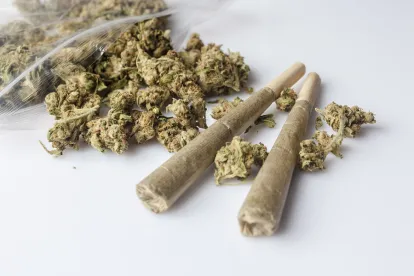In another loss for the cannabis industry, a district court recently affirmed the dismissal of chapter 11 petitions filed by companies that sold product used by both state-licensed marijuana growers and non-marijuana growers. The district court’s decision in Way to Grow, Inc. demonstrates that the door that was opened by the Ninth Circuit in Garvin v. Cook Invs. NW, 922 F.3d 1031 (2019) to cannabis companies was at best only partially opened.
We have written about the facts underlying the Way to Grow case in prior posts. To summarize, Way to Grow, Inc. and two affiliated companies sold indoor hydroponic and gardening-related supplies. The debtors’ expansion plans were tied to the cannabis industry, although the debtors also had customers using the hydroponic products to grow other crops. A secured creditor moved to dismiss the cases, arguing that the debtors should be barred from bankruptcy relief because their business violated the Controlled Substances Act, 21 U.S.C. § 801, et seq. (the “CSA”).
The bankruptcy court found that the debtors were violating section 843(a)(7) of the CSA which makes it a federal crime to “manufacture” or “distribute” any “equipment, chemical, product or material which may be used to manufacture a controlled substance . . . knowing, intending, or having reasonable cause to believe, that it will be used to manufacture a controlled substance.” The bankruptcy court pointed to substantial evidence that established that the debtors had reasonable cause to believe that the equipment and product they sold would be used, by at least some of their customers, to manufacture marijuana. On this basis, the bankruptcy court dismissed the cases “for cause” under section 1112(b) of the Bankruptcy Code.
On appeal, the district court framed the issues before it as (a) the availability of bankruptcy protection to businesses that depend on the marijuana business, and (b) whether these debtors ran such businesses. As to the first issue, the district court held that a marijuana company cannot, in violation of section 1129(a)(3) of the Bankruptcy Code, propose a good-faith reorganization plan that relies on profits generated from marijuana. The court then held that the inability to propose a good faith plan is cause for dismissal under section 1112(b).
Interestingly, the district court questioned the narrow interpretation of section 1129(a)(3) given by the Ninth Circuit in Garvin. Section 1129(a)(3) requires that a plan be proposed in good faith and not by any means forbidden by law. In Garvin, the Ninth Circuit held that section 1129(a)(3) requires the bankruptcy court to examine only the means by which a plan was proposed and not whether the reorganized business will be compliant with non-bankruptcy laws such as the CSA. The Way to Grow court questioned the basis for the Garvin decision, but ultimately avoided opining on what it means for a plan to be “proposed … not by any means forbidden by law” by grounding its holding on section 1129(a)(3)’s requirement that a plan be “proposed in good faith.” Here, the district court held that because the plan relied on profits generated by the cannabis business, the plan could not be proposed in good faith.
The debtors also argued that the bankruptcy court improperly consolidated the three debtors’ businesses into one, and had failed to make specific findings that each of the debtors had violated section 837(a)(7) of the CSA. However, relying on the record from below, the district court found that the business models of the two operating debtors, Way to Grow and Green Door Agro, Inc., were dependent upon activities that could be prosecuted under section 843(a)(7) and that the holding company, Pure Agrobusiness, Inc., involved itself in the other debtors’ business in a way that could subject it to prosecution for aiding and abetting their criminal behavior. The court rejected the “slippery slope” argument that its ruling would make bankruptcy off limit to companies who inadvertently sold product to cannabis companies, finding that between 65% to 95% of the debtors’ revenues came from sales to cannabis companies.
What are the implications of Way to Grow? First and foremost, it is yet another decision that blocks cannabis companies from obtaining bankruptcy relief. Second, while cannabis companies may have viewed the Ninth Circuit’s decision in Garvin as promising, in that the court narrowly interpreted section 1129(a)(3)’s confirmation requirements and looked only at the means by which the plan was proposed and not at the conduct of the reorganized business itself, the Way to Grow court intimated that it did not necessarily agree with Garvin. It bears noting that this is the second court to take issue with Garvin, the first being In re Basrah Custom Design, Inc., 600 B.R. 368 (Bankr. E.D. Mich. 2019), where the court rejected the Ninth Circuit’s narrow interpretation of section 1129(a)(3). Finally, Way to Grow is a reminder to the Office of the U.S. Trustee that motions to dismiss cannabis cases will be well received by most, if not all, of the bankruptcy courts.
We will continue to keep our readers apprised of developments in the bankruptcy courts’ treatment of cannabis companies.




 />i
/>i
